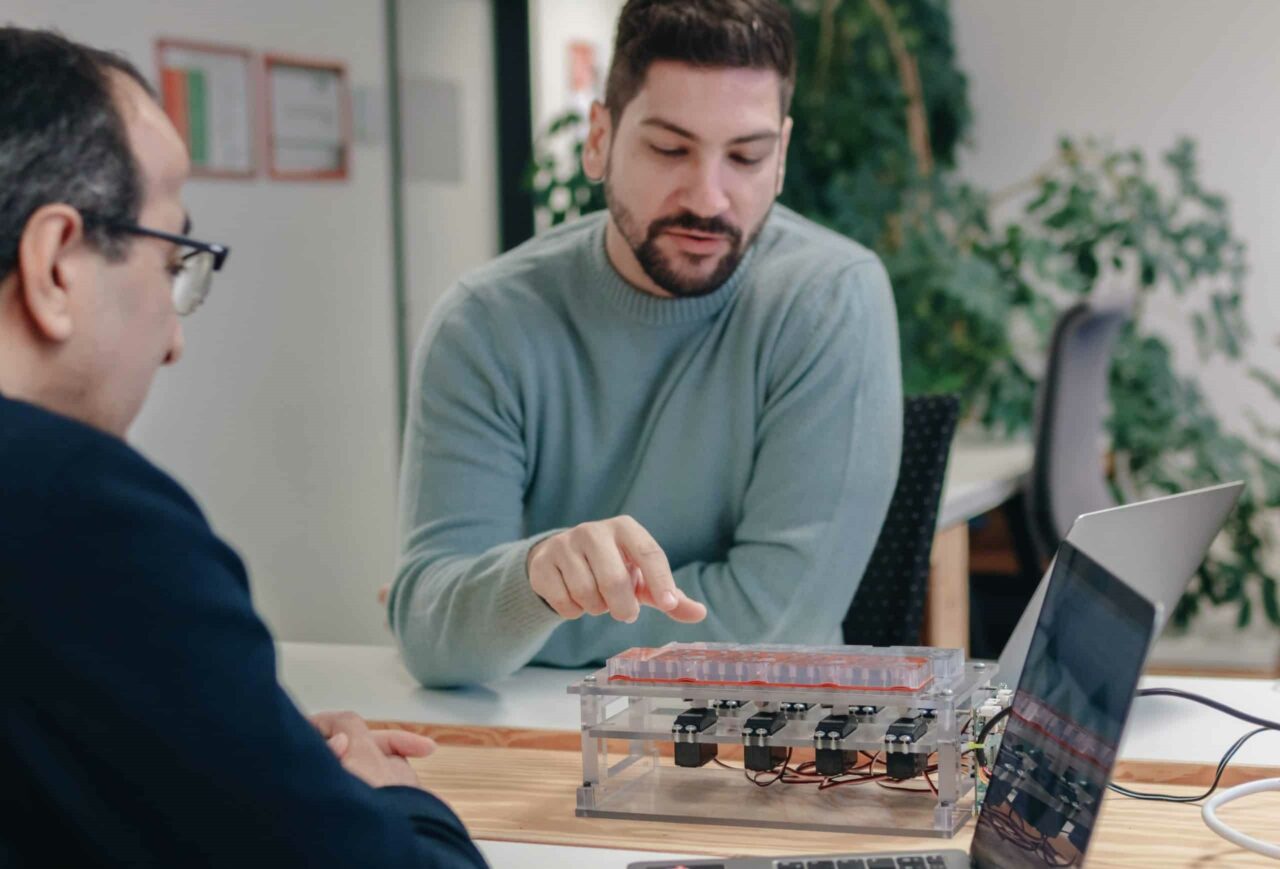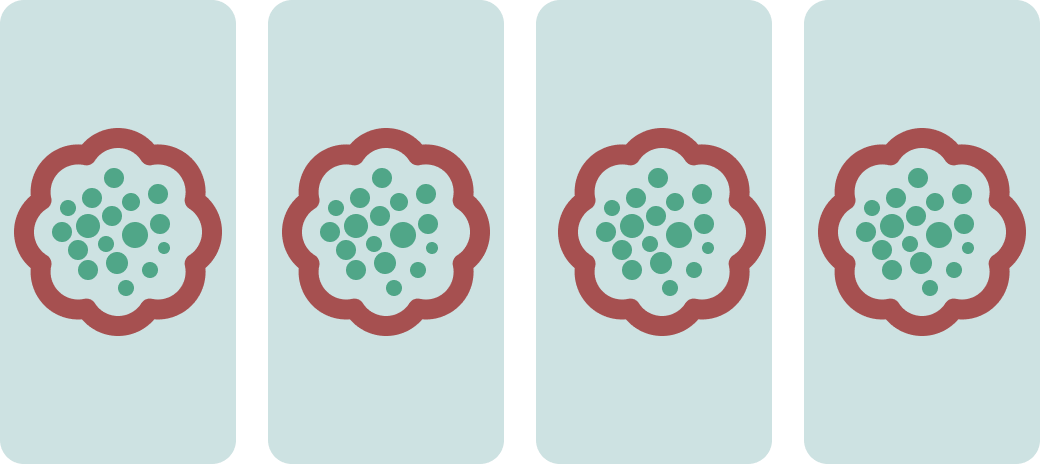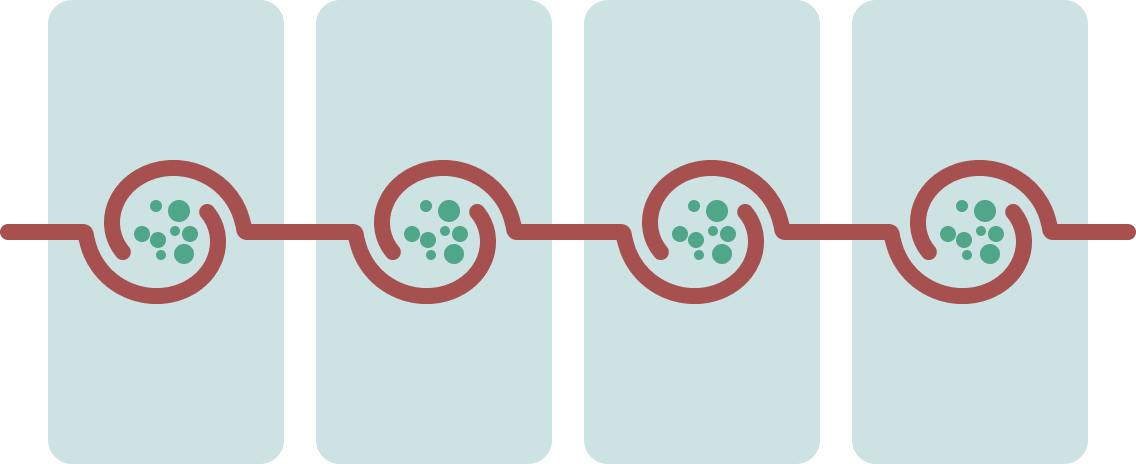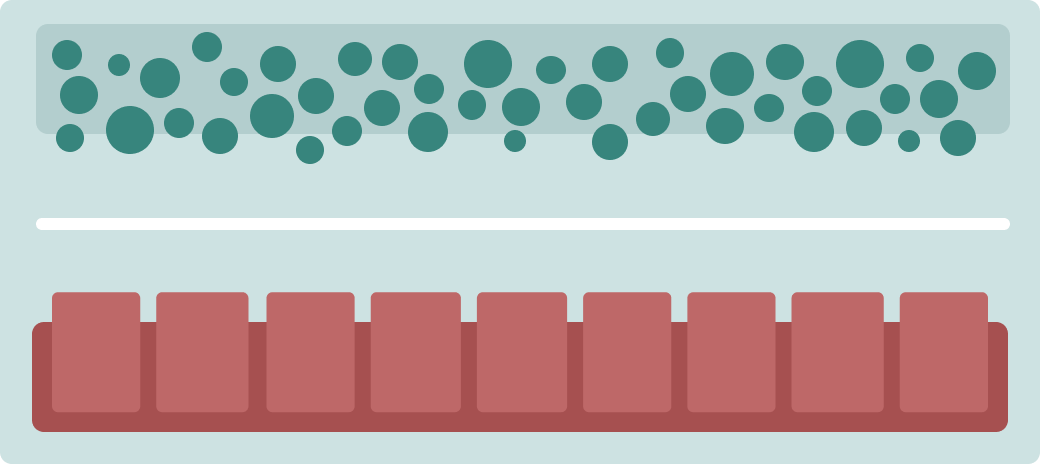Our services
In-vitro models
We analyse the impact of food ingredients on metabolism in vitro.
The IMAT platform is NIUM’s next-generation automated microfluidics system designed to model complex biological environments with precision and scalability. It consists of a core automation unit compatible with multiple interchangeable cartridges tailored to specific research needs.

What do we test?

Ingredients
Full product testing or individual ingredients

Probiotics
Testing of viability and mode of action

Drugs
Drug-microbiome interaction.
Types of microbiome

Human
Healthy donors are fully categorised, along with their nutrition habits

Infant
Diverse infant microbiome profiles with metadata

Animal
Possibility of adapting the system to multiple animal gut-microbiomes

MV-Reactor
High-Throughput Microbial Screening
The MV-Reactor cartridge is designed for fast, cost-efficient in vitro screening of microbial communities and compounds under gut-like conditions.
Key features
- Single-chamber design for high-throughput experiments
- Maintains strict anaerobic or aerobic environments
- Ideal for testing probiotics, postbiotics, and antimicrobials
- Compatible with human, animal, and synthetic microbiota
- Optimised for faecal fermentation studies
Applications
- Microbiome screening pipelines
- Batch testing for product development
- Safety and efficacy profiling of novel ingredients


microGUT
A Multi-Stage Gut-On-Chip Cartridge
microGUT is a modular, multi-compartment cartridge that mimics the entire human colon and small intestine, providing a dynamic, spatially resolved simulation of the gut.
Key features
- Models 4 gut regions (SI, AC, TC, DC) with independent control of flow and pH
- Spiral chambers for realistic nutrient gradients and retention time
- Plug-and-play with the IMAT automation core
- Supports complex, long-term microbial colonisation
Applications
- Studying microbiome-host-diet interactions
- Mapping drug and nutrient metabolism across the gut
- Understanding microbial succession and functional shifts
- Comparing different diets or treatment regimes in a time-resolved setup


Co-culture
Microbiome & Host Cell Interactions
Our Co-Culture Module enables direct interaction studies between live microbial ecosystems and human gut epithelial cells, advancing the frontier of in vitro human models.
Key features
- Two-chamber system with a semipermeable membrane interface
- Maintains differential oxygen and nutrient gradients
- Mimics the mucosal interface of the human gut
- Enables measurement of host responses (e.g., cytokines, barrier integrity)
Applications
- Gut barrier and inflammation studies
- Microbial metabolite-host cross-talk
- Preclinical screening of therapeutics and functional foods
- Immune and metabolic response assays

Who do we work with?
We work with a diverse set of collaborators in the food, pharma and healthcare industries to bring out the best outcome.




